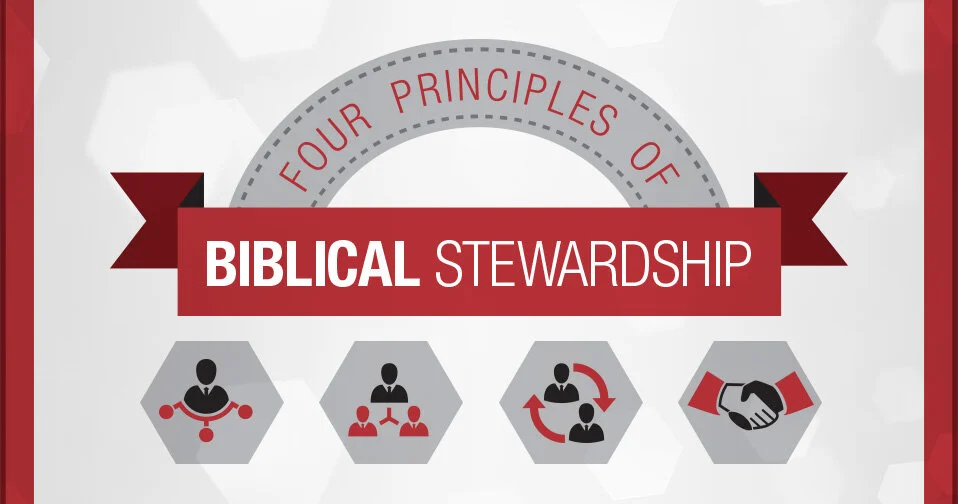Good Idea Fairy
— by Hamilton Powell
Early on in a start-up’s life, one must be prepared to iterate…a lot. To think you have got it right on the first try is naive. You don’t have it right. You will need to duck, dodge, and weave your way into the right business model and solution for your target customer. Enter the “good idea fairy.”
She is a crucial component of the early years of any start-up. And she is you, the founder. An important part of your role is avoiding failure by inserting a flood of continuous ideas into the company. Armed with a healthy dose of pessimism, the good idea fairy sees problems before they occur and always has a multitude of alternative paths to take in case of failure.
She is a vital member of your early team. While your company is nimble you are able to heed to the many callings of the good idea fairy. She captains your pirate ship of a business, filling your days with swashbuckling with your merry band of marauding team members. But this merriment and lawlessness can’t last forever. Eventually, your company will need to graduate from pirate ship to naval fleet. No company is sustainable as a pirate ship long term. Privateering must be replaced in favor of a deadly combination of processes, systems, and strategies.
This does not, however, mean the good idea fairy must not be thrown off the ship. She simply must be enlisted in a different way altogether. A new operating system must be adapted for making decisions. Remember those late-night emails with your impulsive ideas? That has to stop. Remember your ability to jump out of your chair and announce a new initiative you have been thinking about since lunchtime? Nope – that has to go.
Once your company has begun to achieve a “naval fleet” status, you must filter your ideas through an operating system based on your company’s long and short-term vision, available resources, priorities, and values. Here at Crown & Caliber, we chose the EOS model (adopted from a book by Gino Wickman called “Traction”). This has revolutionized how we take great ideas and decide what to pursue and what not to pursue.
Completely cutting off ideas will lead to stagnation and eventually death. No one is suggesting that. But if ideas flow in unfiltered, they will kill your company in a different way: fatigue. Imagine a bus.
When you are driving the bus and you choose to take a sharp turn, you don’t feel it that much. However, the passengers in the back of the bus are probably on the verge of nausea from these sudden changes in direction. Once your company has reached a level of maturity, you can no longer just “throw out” ideas with your team as freely as you once did. It will confuse the team and may even send a subtle message of distrust.
At this level in a company’s life, your words matter more than ever. My coach, Bob Lewis, has said on multiple occasions: “When the CEO whispers, everyone else hears a scream.” The ideas you freely float to the team must be done so responsibly, through an operating system like EOS.
The world is competitive. For that reason, you cannot be a mile wide and an inch deep. The good idea fairy can ultimately destroy your business more than any competitor could. Imagine how elated you would be to learn your fiercest competitor just decided to spread into ten other categories. You would be ecstatic because you know this lack of focus only serves you, the competitor.
In the same way, fairies and pirate ships and impulsive bus drivers require a process and a system to turn from a liability to an asset. Only you can make that happen.
Related articles
How did Jesus spend his last hours before the cross? He ensured His “Executive Leadership Team” had vision, clarity, and line of sight on essentials and prayed for their cross-functional unity!
Faith-based enterprises transforming economies intuitively makes sense but its potential has yet to be realised. Why is this the case?
Whether it’s in your culture alignment, marketing effectiveness, or simply in increased profitability, we’re dedicated to helping your business to reach new heights.
You may be surprised to learn that situation analyses including market reports and competitive assessments are not just modern-day inventions and practices endemic to the business world. They are not new to God. He designed them!
Are you more wired as an enterprise leader or an entrepreneurial leader? Read more on why both types of leaders are needed in most successful organizations.
As a Christian business owner, are you are attempting to integrate biblical principles into every aspect of your business? How about your retirement plan? Is it even possible to honor God through your 401(k) plan? If yes, how?
After working with literally thousands of leaders and companies, I’ve discovered there are three stages for any business or enterprise growth. Don’t think days and weeks; instead, think growth and maturation.
Early on in a start-up’s life, one must be prepared to iterate…a lot. To think you have got it right on the first try is naive. You don’t have it right. You will need to duck, dodge, and weave your way into the right business model and solution for your target customer. Enter the “good idea fairy.”
Have you ever looked up the definition of pivot? What if I shared with you that we as leaders are the “Pivotman/woman” for our organizations?
In a business world that prioritizes productivity, speed, and profits, Christians may feel like Monday through Friday belongs to the world while Sunday belongs to God. But Scripture beckons Christians toward a more holistic lifestyle. “Whatever you do,” Paul says in 1 Corinthians, “do it all to the glory of God.”
When we (C12 Group) first began to release information, resources and guidance on playing offense in regards to COVID-19 in February there were some reports of “what’s the big deal, it’s not effecting my city, business, industry.” Those delusions are quickly fading. As a global economy, human race, and universal Church everyone is and will be effected in one way or another.
“Creativity must be accompanied by a process to uncover and test the best ideas… With the surplus of good ideas, we knew we needed a process to help us systematically prove out the ones that would solve real problems, and help us avoid expending valuable resources and talent with nothing to show for or learn from at the end.” In this video, we hear from Kevin Miller, C12 Vice President of Marketing, who describes how C12 developed its Innovation Sequence.
This article was from a collection of White Papers compiled for attendees of the CEF’s 2019 Global Event. Today, we share the Morales family’s White Paper on their company FXM — “Hard work in God’s name, diligence, honesty, and a deep knowledge of “Who’s who” in the Mexican food industry has meant the world for our success as a company. ”
Chris Horst and Claire Stewart share their Christianity Today article “The Christian Roots of the Fair Trade Movement” with us. Beneath the buzzwords around sustainability, transparency, and ethical sourcing we find something far more important than consumerism: Christ-centered love for our neighbors.
What does stewardship look like in our lives today? What does it look like in our businesses? Unfortunately, many Christians today only associate the idea of stewardship with sermons, church budgets and building programs. The idea of biblical stewardship is much more expansive. It is where the concepts of faith, work, and economics intersect.
C12 Member, Todd Stewart, and CEO of Gulf Winds Intl, decided a 50% employee engagement rate was not acceptable within his freight and shipping company. He and his Key Player executive team purposed to engage each employee by listening to their needs and delivering exceptional employee care.
Originally published by WRAL TechWire — Bandwidth , a Triangle-born provider of communications-related services that has grown into a venture with global reach, might be riding high at the moment after recently hitting the $2 billion valuation mark. But as its founder and CEO David Morken can attest, it hasn’t always been smooth sailing. He credits one thing for getting him through: his Christian faith.
The Lion's Den, with their conferences in Dallas and Birmingham, have been partners in the Faith Driven Entrepreneur movement for more than 5 years. Think "Shark Tank" meets the Kingdom of God and you have a sense as to what happens at these events. This video is about building your business for God and creating a culture that is Christ based.
From time to time we leave the world of faith driven content to highlight a piece of wisdom from a secular author that has inordinate wisdom and application for you, the faith driven entrepreneur. Enjoy this great blog post from Marc Andreesen!
Originally published by Fast Company— When entrepreneur Chris Chuang moved to Raleigh, North Carolina, for a job, he expected to be there for two or three years at the most. Instead, he wound up staying and built a successful tech company.
This article was from a collection of whitepapers compiled for attendees of the CEF’s 2018 Global Event. We share Darin’s whitepaper in anticipation of 2019 CEF whitepapers launching soon! Read Darin Owen’s view on how to start, build, and grow prosperous companies.
“There are other ways of writing about the stages of business development. I’ve done it myself, but I find quantifying it in this way—0 to 1, 1 to 5, and 5 to 50—makes sense to a lot of my clients. It works in any industry, any style of corporate culture, and every market I can think of.”
Originally published by Fast Company— Corrie Conrad, Head of Social Impact at Sephora, shares about Sephora Stands Together (financial support to Sephora employees), Classes For Confidence (workshops for women trying to reenter the workforce) and Sephora Accelerate, its startup incubator.
C12 shares their video on Gary Archer’s story. He shares on the impact of working with a workplace ministry group that encourages and challenges you in your walk with the Lord and how it integrates with your business.
We understand that we are created in God's image, that he was a creator and a designer and therefore we are the same. As entrepreneurs we inherently get this at some level, but I think that we are well served by tapping in to this Biblical truth regularly as we look for an encouragement in our work. No one does a better job of this, in my opinion, than Jerry Bowyer.
Originally published by FORBES — The Millennials, who were born into the age of information, have been described as lazy, narcissistic, entitled and unable to stay in one job, but also as the most purpose-driven and potentially the most entrepreneurial of all previous generations. Why?
Today, we share a high-caliber podcast series from NPR! How I Built This with Guy Raz dives into the stories behind some of the world's best known companies & movements and the innovators, entrepreneurs and idealists leading them.
Jon Kontz shares his insights on hiring the right people (as individuals and as part of a team) using tools like The Team Dimensions Profile 2.0 but also by simply knowing the momentum and scarcity of resources based on the size of your own company.
——
[ Photo by Kristopher Roller on Unsplash ]





























In Pierce Brantley's research, he's discovered that many well-meaning Christian business owners will get stuck at various stages of business without realizing it.